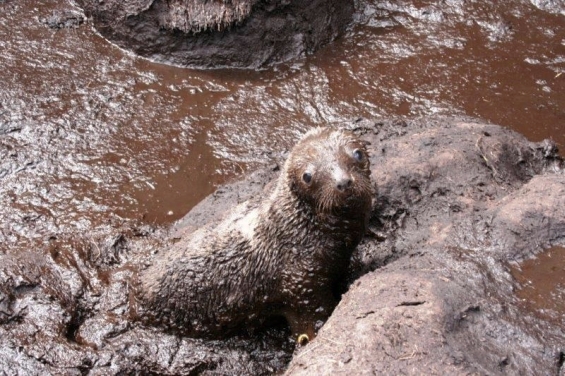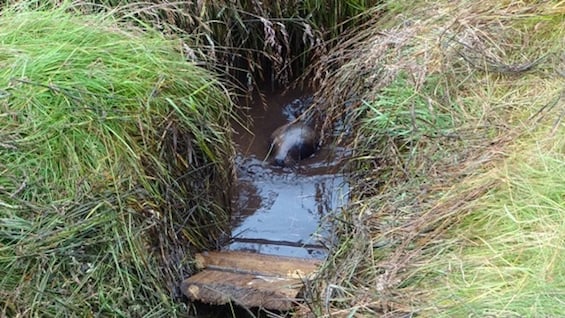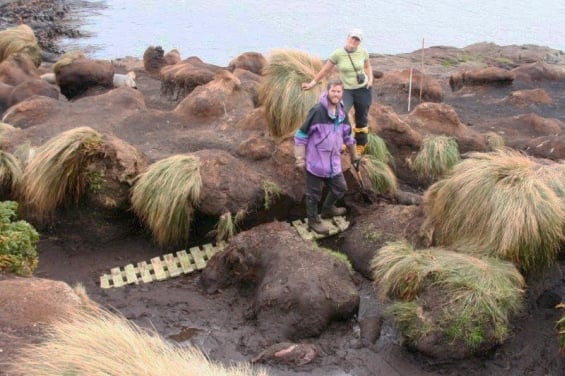Archived content: This media release was accurate on the date of publication.
Date: 31 March 2015
New images and footage released today reveal how ‘escape’ ramps installed in holes in the ground are saving endangered sea lion pups from a needless death.

New Zealand sea lion pup
Twenty-three pups have been recorded by GoPro cameras using the wooden ramps to haul themselves to safety on New Zealand’s remote Enderby Island since Department of Conservation (DOC) contractors installed them in January. The team returned to the mainland this week.
Earlier in the summer, 65 pups were pulled out of the holes by researchers. The holes have steep sides and deep mud at the bottom. The ramps enable the pups to climb out to safety.
WWF supporters paid for twelve ramps to be installed on Enderby Island and for three new ramps and the repair of existing ones on Campbell and Dundas Islands.

A sea lion pup climbs up a ramp on Enderby Island
“If pups fall into these holes and can’t climb out, they can suffer from hypothermia, starve or drown. Sea lions face so many other threats, such as entanglement in fishing gear, disease and competition for food, that we need to do everything we can to give these pups the best chance of survival,” said Milena Palka, WWF-New Zealand’s Marine Species Advocate.
New Zealand sea lions are the rarest species of sea lion in the world and the most threatened because of their declining numbers. They are classed as ‘nationally critical’ and are only found in Otago, Southland, Stewart Island and the Subantarctic Islands.

Sea lion pup ramp on Campbell Island
Ian Angus, DOC’s Marine Species and Threats Manager said: “The results of this summer trial are very exciting. DOC staff intend to monitor the ramps to see how they might best assist the sea lions through the year. Full credit is due to WWF for supporting and financing the trial. It’s certainly a encouraging result for the sea lions.”
Researchers from DOC spend the summer months in the Subantarctic Islands counting and tagging sea lion pups, and have been monitoring the effectiveness of the ramps.
Related link
Sea lion threat management plan
Contact
Rosa Argent, WWF Communications Manager
Mobile: +64 27 212 3103
Email: rargent@wwf.org.nz
Andrea Crawford, Communications Advisor
Mobile: +64 27 22 22 735
Email: acrawford@doc.govt.nz